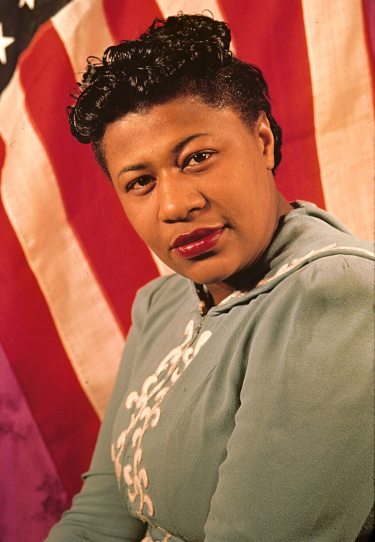Reminiscing in Tempo
*
Memories and Opinion
_____
“Reminiscing in Tempo” is part of a continuing effort to provide Jerry Jazz Musician readers with unique forms of “edu-tainment.” Every month (or as often as possible), Jerry Jazz Musician poses one question via e mail to a small number of prominent and diverse people. The question is designed to provoke a lively response that will potentially include the memories and/or opinion of those solicited.
Since it is not possible to know who will answer the question, the diversity of the participants will often depend on factors beyond the control of the publisher. The responses from the people who chose to participate in this edition are published below with only minor stylistic editing. No follow-up questions take place.
_____
What are the five greatest albums (LP or CD) of all time?
Originally published August, 2006
Five greatest:
01. The Oscar Peterson Trio at the Stratford Shakespearean Festival
02. Birth of the Cool, Miles Davis
03. Bixieland, Eddie Condon
04. Sorta-May, Billy May
05. The Emerald Isle, Robert Farnon
But just as important:
06. The entire Columbia Records Stravinsky
07. Miles Ahead, Miles Davis
08. Gloomy Sunday and Other Bright Moments, Bob Brookmeyer Orchestra
09. Sonny Stitt Plays Arrangements of Quincy Jones
10. Turangalila Symphony, Olivier Messiaen
11. Les Bander Log, Charles Koechlin
12. Sonatas and Interludes for Prepared Piano, John Cage
Singers? Lee Wiley, Sarah Vaughn, Carmen McRae, Ella, Cathy Berberian, etc.
Where will it end…..?
_______________________________________________________________________________
Only five huh? And albums and CDs, not singles? Nor, I assume, complilations? My choices would change every day, maybe every hour, so here’s a solution: these are my favorites from the two musicians I’ve written and thought about the most, Miles Davis and Sun Ra:
Miles Davis:
The Birth of the Cool
Kind of Blue
Bitches Brew
— Three great turning points in jazz history
Sun Ra:
Strange Strings
Atlantis
— Avant-garde? You bet.
These artists are among my favorites, but I listed these five albums in particular because they represent some of the greatest material; well chosen songs that are especially well delivered:
By Special Request — Carmen McRae — 1955
Porgy & Bess — Miles Davis/Gil Evans — 1958
Only The Lonely — Frank Sinatra — 1958
Mr. Easy — Jesse Belvin — 1959
Mercy, Mercy, Mercy — Cannonball Adderley Quintet — 1966
_________________________________________________________________________________
Imagine that King Kong has destroyed our city. We must take to the bunkers. No telling how long we’ll be down there. We do not want to be stuck with exasperating music in the bunker. The following is a baker’s dozen choice of jazz and rock recordings (some of them may be hard to find) that are guaranteed to wear well — in fact, they will sound better and better. They used to be called desert island records.
Lucky Thompson; Lucky Strikes. To be able to continue being heard day after day, music must be of superior intellect, cliché free, and listener friendly, like Lucky Strikes — an overlooked jewel. At his best, the smoothly adventurous saxophonist Thompson was as good as absolutely anybody. (Hank Jones, piano, Richard Davis, bass, Connie Kay, drums.)
Duke Ellington and John Coltrane. The inspiration flows back and forth as the rhythm sections of Ellington (Aaron Bell and Sam Woodyard) and Coltrane (Jimmy Garrison and Elvin Jones) alternate, adding up to one good illustration of the infinite variety of a groove. “Take the Coltrane.”
Zoot Sims, For Lady Day. Songs associated with Billie Holiday interpreted by the white Lester Young par excellence, with the blatantly eccentric Jimmy Rowles on piano, and George (the “Bad Czech”) Mraz on bass. When Sims was once asked how he could play so well when he was drunk, he replied: “I practice when I’m drunk.” A good soundtrack for a movie of On The Road.
Gil Evans (featuring Cannonball Adderley), New Bottle, Old Wine. “King Porter Stomp,” “Struttin’ With Some Barbecue,” “St. Louis Blues,” and other traditional songs streamlined and reinforced without disturbing the foundations. Evans’ playful dissonance and ambitious pecking schemes are well-rehearsed for once, you can’t go wrong with Art Blakey, and Adderley is majestic.
Sonny Rollins, The Bridge. Marking the end of a premature retirement punctuated by frequent nighttime practicing on an East River bridge, the “Saxophone Colossous” came back with a roar — thanks in large part to the collaboration of the thinking man’s guitar player, Jim Hall.
Relaxin’ with the Miles Davis Quintet. The tension generated by Paul Chambers’ bass walking right on top of the time in tandem with Philly Joe Jones’ fourth-beat rim-shot laid back on it was one of Davis’ greatest triumphs as a casting director (with John Coltrane, and Red Garland on piano). “I’ll play it and tell you what it is later.”
Thelonious Monk Plays Duke Ellington. Childlike versions of sophisticated songs (with Oscar Pettiford, bass, and Kenny Clark, drums) that marry consonance with dissonance, and the humorous with the profound.
This is what I come up with — in no particular order:
Miles Davis — Miles Ahead
Duke Ellington — Indigos
Frank Sinatra — Songs For Swingin’ Lovers
Original Broadway Cast — My Fair Lady
John Coltrane and Johnny Hartman







































